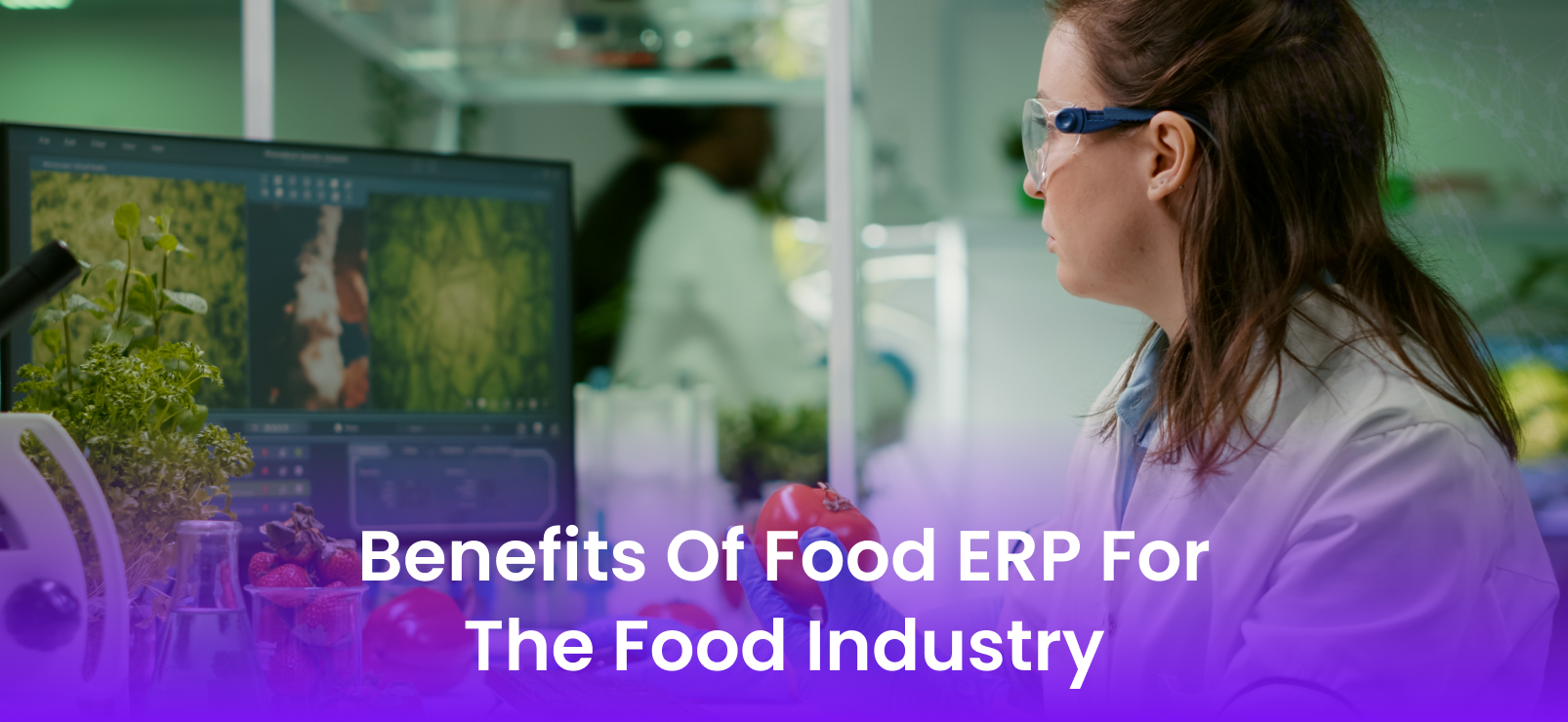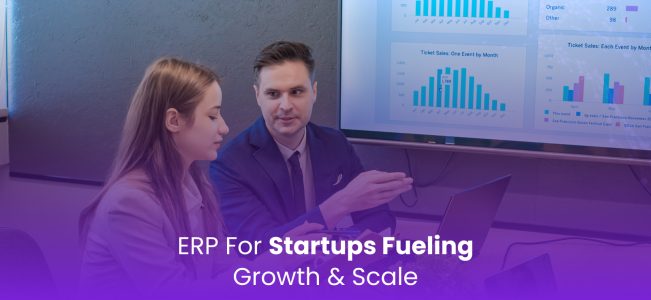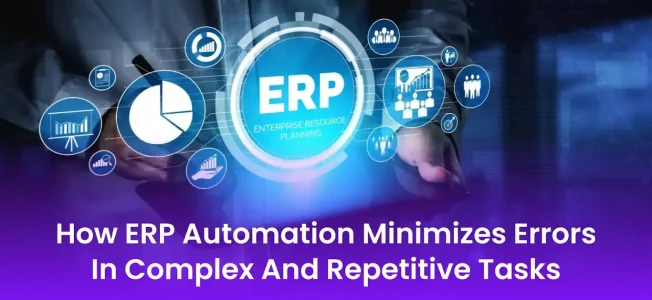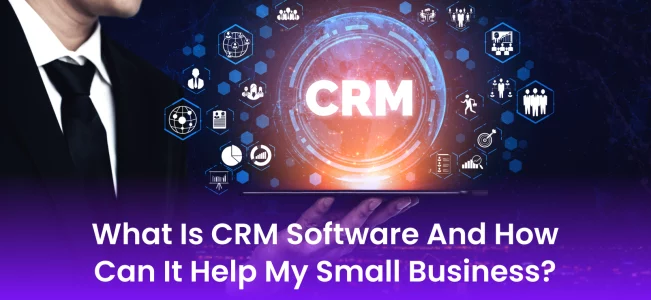Exploring The Benefits Of Food ERP For The Food Industry
Regulatory compliance, supply chain management, quality maintenance, and meeting consumer demands are some of the issues that the food industry faces. A potential tool that helps food businesses streamline operations, boost productivity, and improve decision-making is an enterprise resource planning (ERP) system. What Food ERP is and how it helps the food industry will be discussed in this blog.
What is Food ERP?
Enterprise Resource Planning also known as ERP is a software solution that involves numerous business processes into one unified platform. Food ERP systems are personalized to meet the specific demands of food businesses, aiding them manage operations such as, procurement, production, inventory, sales, distribution, quality control, and compliance from a single system. By collecting data from different departments, Food ERP provides real-time transparency and control, improving efficiency and collaboration throughout the business.
Food ERP systems involve specialized features for recipe management, batch traceability, inventory management for unpreserved goods, and compliance with food safety regulations. These systems automate manual tasks, reduce errors, and offer insights that drive smarter business decisions.
Key Benefits of Food ERP
-
Maximized Efficiency and Cost savings
Food ERP systems simplify operations by including different functions into one platform, eradicating the requirement for numerous disconnected systems. Automating routine tasks such as inventory updates, procurement orders, and invoicing reduces administrative overhead and the risk related to human error. This improves operational efficiency and allows employees to focus on more strategic activities.
By providing real-time data on inventory levels, production schedules, and sales forecasts an ERP allows businesses to optimize resource allocation and reduce waste. By adjusting production schedules and inventory management as per demand forecasts, businesses can lessen overproduction and stockouts, resulting in cost savings.
-
Regulatory Compliance and Traceability
With rigorous standards for food safety, labelling, and traceability, the food industry is heavily regulated. Recalls, fines, and reputational damage are consequences of noncompliance. Through the automation of compliance processes and the inclusion of traceability features, food ERP systems help companies in maintaining compliance.
ERP systems give companies the ability to track products from raw materials to completed goods through batch and lot traceability. In the case of a recall, ERP systems can immediately locate and separate affected products, reducing consumer risk and securing the company’s image.
-
Better Financial Management
Since effective financial management is crucial in the food industry, Food ERP systems automate financial processes, such as payroll, invoicing, and billing, helping businesses manage their finances better. These systems also monitor revenue, expenses, and profitability through real-time financial data.
Additionally, ERP systems help with financial forecasting, cost analysis, and budgeting, allowing businesses to make sound financial choices. With integrated financial data, businesses can improve cash flow monitoring, lessen financial reporting errors, and maintain accounting standard compliance.
-
Better Quality Control
In the food industry, where products must conform to strict security and consistency standards, quality control is essential. ERP systems for the food industry help with quality control by collecting information on product quality at each stage of production, from raw materials to final inspection. Automating testing and inspections helps ensure that goods fulfil quality and regulatory standards.
ERP systems also help companies monitor and manage non-conformance reports, remedial actions, and preventative measures that minimize the chance of expensive recalls while preserving product quality and identifying possible quality problems early on.
-
Improved Customer Service
In the food industry, where customers expect reliable support and high-quality products, customer satisfaction is essential. Food ERP systems improve customer service by offering a 360-degree view of customer interactions. With customer data, including order history, preferences, and feedback, businesses can offer personalized service and promptly address issues or enquiries. Additionally, ERP systems make production schedules, inventory control, and order processing easier while ensuring on-time delivery and reducing errors.
-
Optimized Supply Chain Management
An ERP systems provide businesses with end-to-end supply chain visibility, food ERP systems enable them to maximize order fulfilment, inventory control, and procurement. ERP systems integrate sales forecasts, production schedules, and inventory levels to help businesses streamline production and manage stock levels. This lowers the possibility of stockouts or overstocking and signifies rapid delivery of products. ERP systems also improve supplier relationships by tracking supplier performance and ensuring on-time raw material deliveries.
Why Choose CERPSuite for Food ERP?
CERPSuite delivers a comprehensive and personalized ERP solution for the food industry designed to simplify operations, ensure regulatory compliance, and optimize supply chain management. With real-time data transparency, advanced quality control features, and strong traceability competencies, CERPSuite assists food businesses enhance efficiency, lessen costs, and maintain product safety standards. Its scalable and adaptable platform supports the unique requirements of food manufacturers, distributors, and retailers, making CERPSuite an ideal choice to improve business productivity and drive growth in a competitive market.
Conclusion
Food ERP systems offer several advantages in the rapid, highly regulated food industry of today. It helps streamlining business operations, while helping them make better decisions, and maintain their competitiveness through integrating multiple business functions onto a single platform. Whether you’re a food manufacturer, distributor, or retailer, employing a Food ERP system can optimize your operations and result in business growth in today’s dynamic market.












